Disclaimer
This blog is our personal space - not a business pursuit. These articles are our gift to you and we frankly have no interest in convincing anyone to follow this path.
We are NOT selling these batteries, we regularly turn down advertising requests and we're not electrical/battery consultants/experts.
We may however have affiliate interests in some products, but only those we can give a thumbs up to.
We purchased our initial system at full retail cost, however over the years due to this series - some upgrades and new equipment has been provided to us for field beta testing either at no cost or substantial discounts from manufacturers we now provide feedback to.
We have tried to share all the information we can in the below articles, updates & video. If you have further questions, it's time to start a conversation with the battery distributor or installer you're considering - not us.
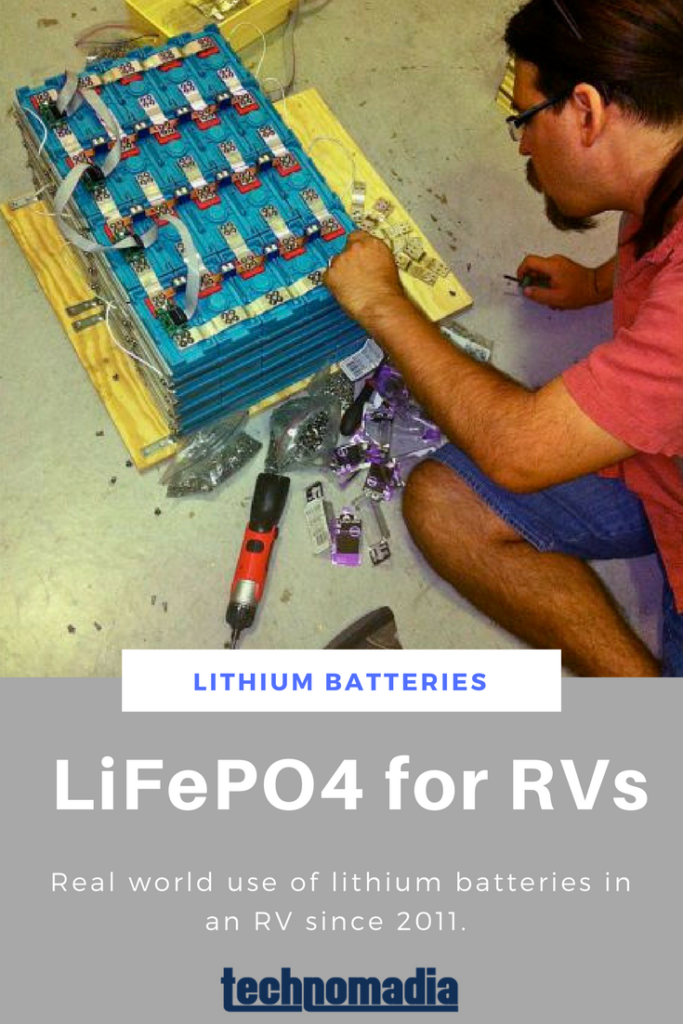
Our Lithium Systems Since 2011
Our goal with our electrical systems is versatility.
We enjoy staying in a variety of locations - from campgrounds & marinas with amenities, courtesy parking with friends & family to extended boondocking/anchoring.
We didn't want to overdesign for any one scenario, but rather find our own unique balance that makes any of these styles thrivable.
We began our journey with lithium batteries back in 2011 with our vintage bus conversion (which has now been replaced). We also installed lithium on our boat. At present time, our van does not have lithium (one day!).
Research & Analysis Articles:
Promise of Lithium #1: Lead Acid Battery Downsides
Promise of Lithium #2: Lithium Ion Battery Advantages
Promise of Lithium #3: Cost Analysis (including our part list)
Resources
Other lithium resources - posts, installers & resellers.
First System (2011-2019): Our 1961 Vintage Bus Conversion
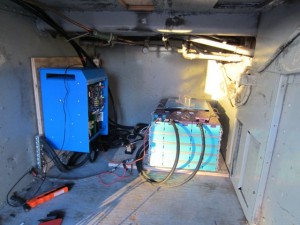
In June 2011, we bought our vintage bus conversion without a house battery system already installed. The just emerging lithium ion batteries had already been on our radar, and since we had the opportunity to build our electrical system from scratch - we decided to delve into the world of LFP.
Specifically — we went Lithium Iron Phosphate aka LFP aka LiFePO4.
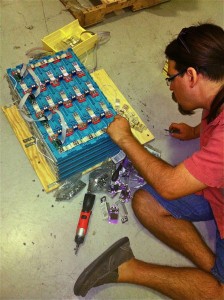
At the time, while gaining popularity in the cruising community, there were very few RVs with lithium based house system. And thus limited options and resources available to tap into. So we decided to build our own out of cells meant for electric vehicle conversations. We worked with Elite Power Solutions to break down their 48v GBS cells packs into a 12v system.
Our fridge is a marine 12v Dan Foss Compressor (all electric), and we use electric for most our cooking (induction cooktop, microwave/convection, InstaPot, etc.).
We also travel with a cat, and want to provide ample cooling if we want to stop and take a hike, explore a museum or pick up a few groceries in route - so thus we wanted to run a roof air off battery for a couple hours (yes, it's possible to run an A/C off battery - but not entirely off our solar!).
Quick specifications of our original RV system :
- LFP - 500 AH at 12v (400AH 'usable' at 80% DoD)
- Cells & EMS purchased from Elite Power Solutions in Phoenix, AZ - assembled by us
- Chemistry - Lithium Iron Phosphate aka LFP aka LiFePO4
- Dimensions - 141 lbs, 20" D x 13.5" W x 10" H
- Inverter/Charger: Victron MultiPlus 12/3000VA
- System Controller: Victron Control Contro GX
- Battery Controller: Victron BMV700
- Charged via shore power, generator, alternator and 800w of solar on our roof
- Installed: August 2011
- Decomissioned: December 2019
Most of our series below is based on this project - including updates over the years. There was a lot we learned in the process that hopefully helped others avoid the same mistakes.
After prolonged storage in 2018/2019 our original battery system met its fate due to LED lights on the battery balancer board draining the system to unrecoverable.
For a full recap of how our original system met its fate after 8.5 years:
What Killed Our RV Lithium Batteries? 8.5 Years of LiFePo4
Replacement System (2019-): Our 1961 Vintage Bus Conversion
After our original system failed in 2019, we accepted Battle Born Batteries' kind offer to replace it with their batteries.
While our original goal was 800-1200AH of capacity, we decided to stay small with the replacement system. We now only part-time RV, and only part of that will be boondocking. And, it should all be in winter months where an AC won't be needed.
This also made the replacement a fairly easy swap without reconfiguring the installation. We kept all of the same components of our original setup - inverters and controllers.
Quick specifications of our current RV system :
- Batteries & BMS: 4 x 100AH Battle Born GC2
- Inverter/Charger: Victron MultiPlus 12/3000VA
- System Controller: Victron Control Contro GX
- Battery Controller: Victron BMV700
- Charged via shore power, generator, alternator and 800w of solar on our roof
- Installed: December 2019
Our 1999 Bayliner 4788 Boat (2018)
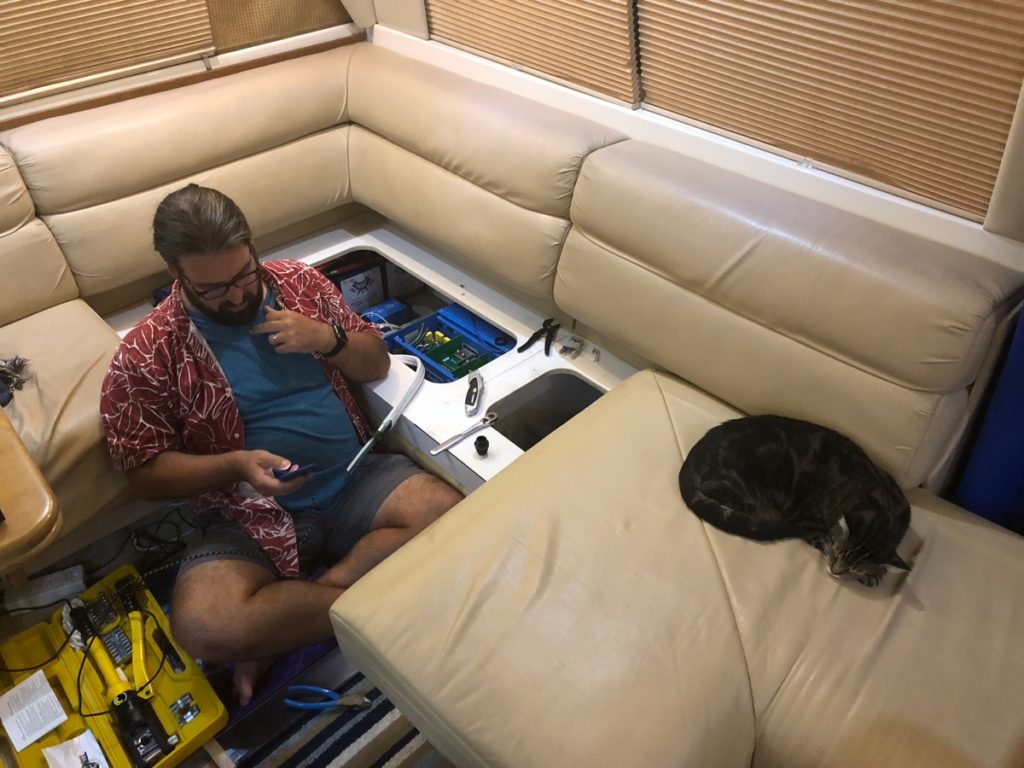 In March 2017, we purchase a motor yacht for exploring America's waterways seasonally.
In March 2017, we purchase a motor yacht for exploring America's waterways seasonally.
We were gearing up to approach designing our system in September 2017 - unfortunately we were in the Florida Keys at this time, and those plans were diverted by a direct strike from Hurricane Irma.
In late summer 2018 we had nearly decided to hold the battery project off for the start of our 2019 cruising season, to give us more time to decide between newer higher density lithium options or going with what is now fairly mainstream options.
However, the existing traditional lead acid house battery system in our boat was quickly reaching unusable - so we began seeking a temporary solution for the couple months remaining in our 2018 cruising season. We explored just purchasing cheap replacement lead acid batteries - but decided to reach out to several lithium battery suppliers we had grown to respect.
We decided to accept Battle Born Batteries' offer of their drop in lithium batteries, mainly because we're very curious to get hands on experience with this mainstream option that is becoming quiet popular. We'll be able to provide feedback to them, to our audience and to evaluate them as our own possible long term solution.
We re-wired the boat for 24v, and installed Victron gear. In spring 2019, we completed the installation of 1440w of solar panels as our flybridge cover.
Our starting battery system in the boat, being in September 2018, consists of:
- Batteries & BMS: 6 x 100AH Battle Born GC2 wired up for 300AH at 24v
- Inverter/Charger - Victron Quattro 24/5000
- System Control - Victron Venux GX
- Battery Controller - Victron BMV712 Smart (Bluetooth!)
- Converter - Victron Orion 70A 24v to 12v Converter
- Charged via shore power, generator, alternator and 1440w solar
- Installed: September 2018
Get a full tour:
Tour of our Boat's Electrical System: Solar, Lithium & Inverters!
Project Notes & Updates:
RV & Boat Electrical System Videos
Lithium Resources
Links to other Lithium battery setup information:
- Cruiser Forums Thread
- WheelingIt's 2016 Installation
- Dave of RVNerds has built a 48v LFP setup out of the battery of a Volt.
- Gone With the Wynns - Used ReLion on their boat
- Mortons on the Move - built from a wrecked Tesla battery system
- The RV Geeks - Testing out the new Xantrex Lithium setup
Places Installing and/or Selling Lithium Batteries:

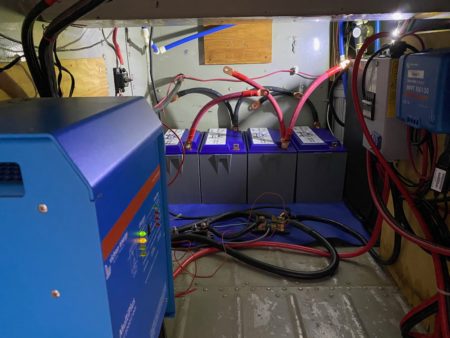
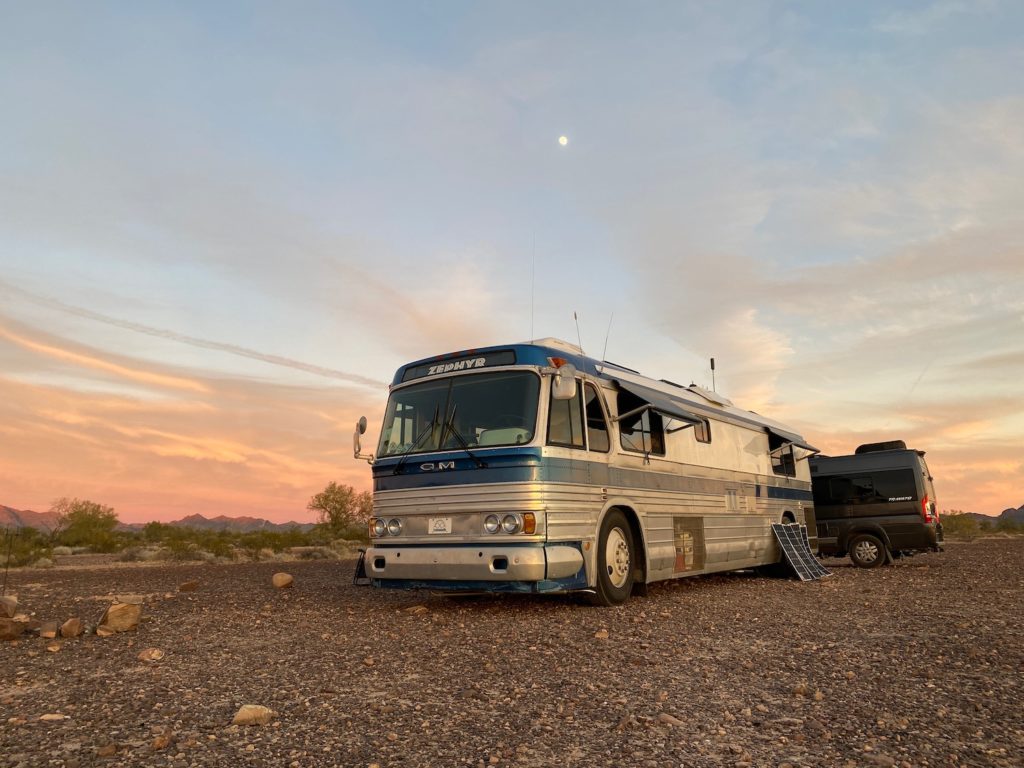
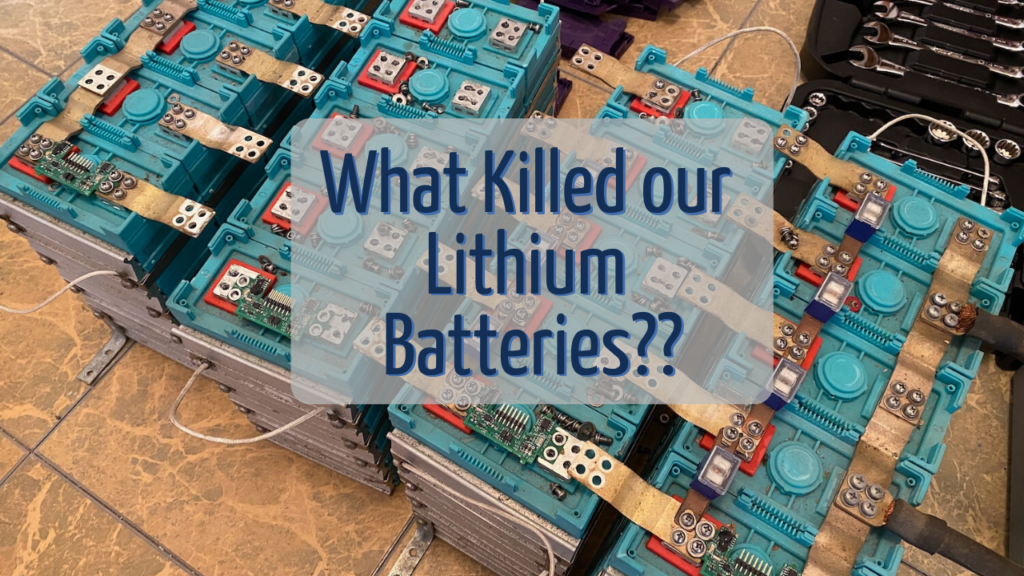
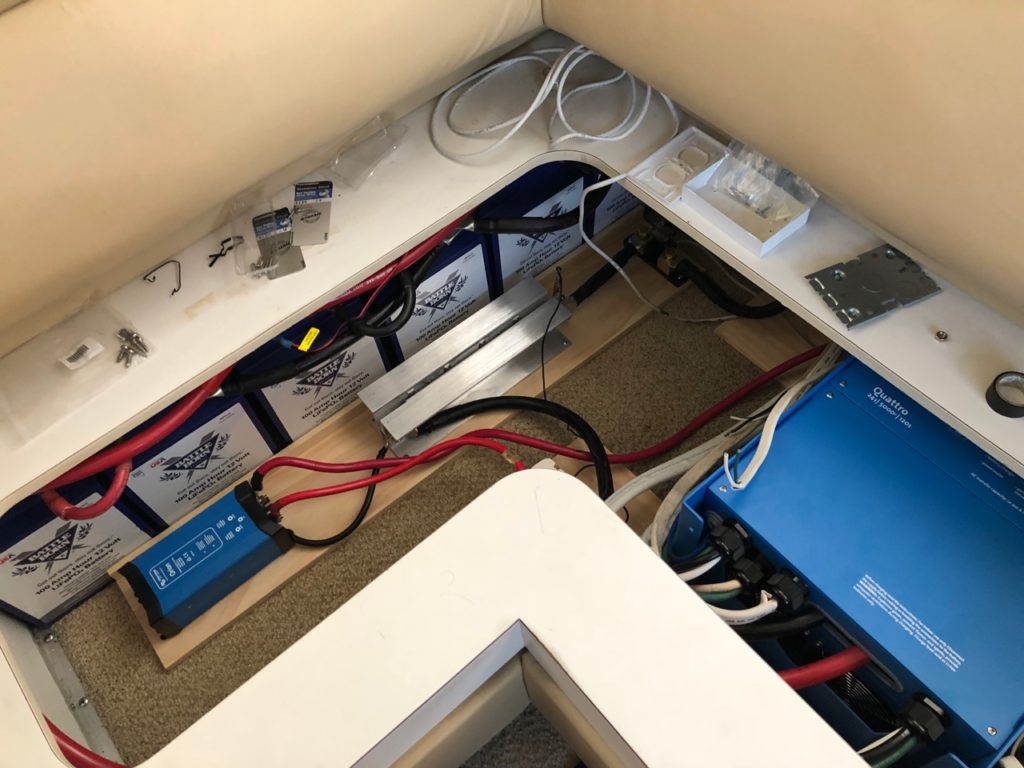
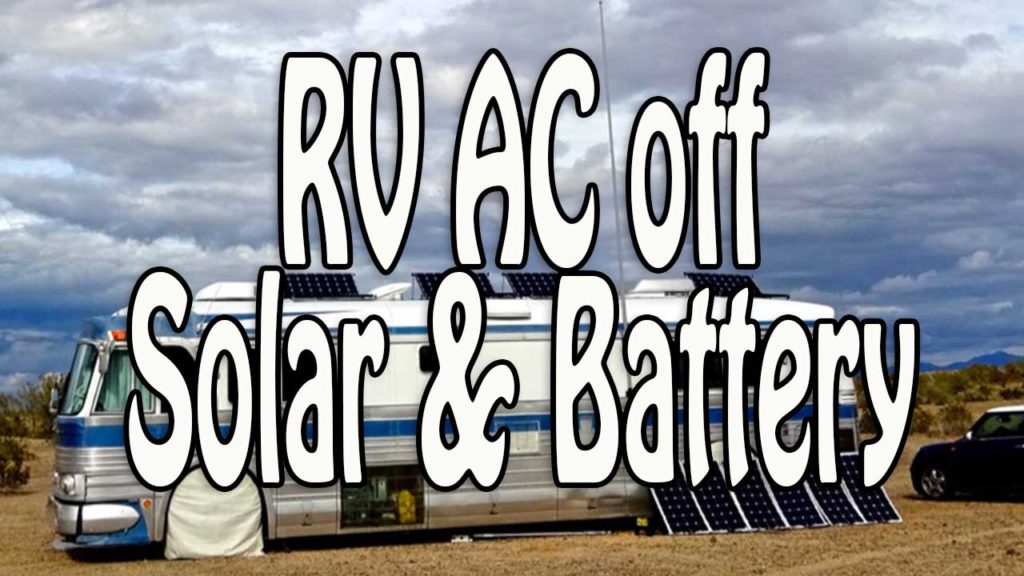
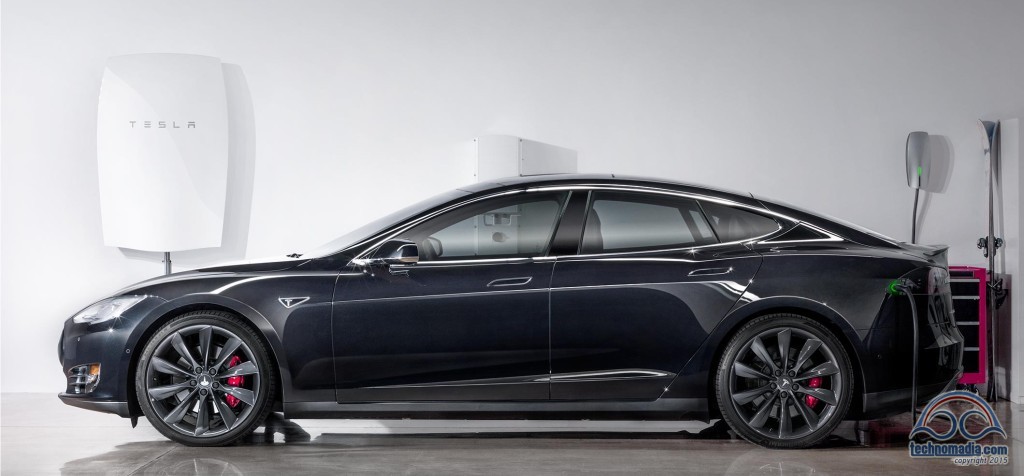
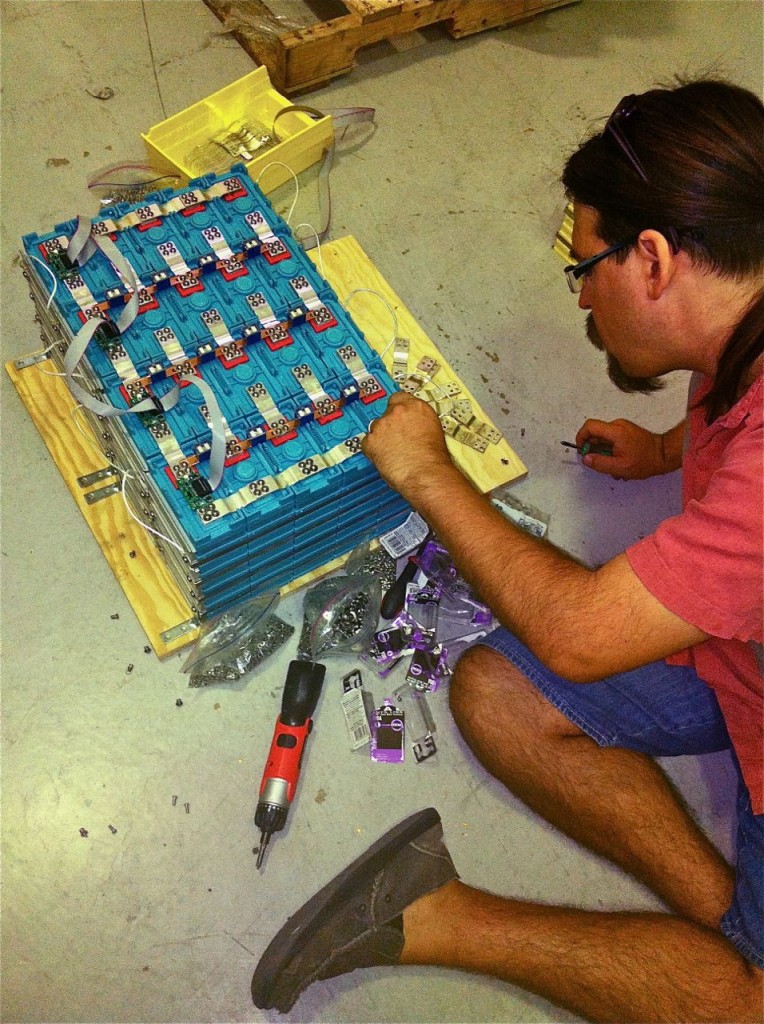
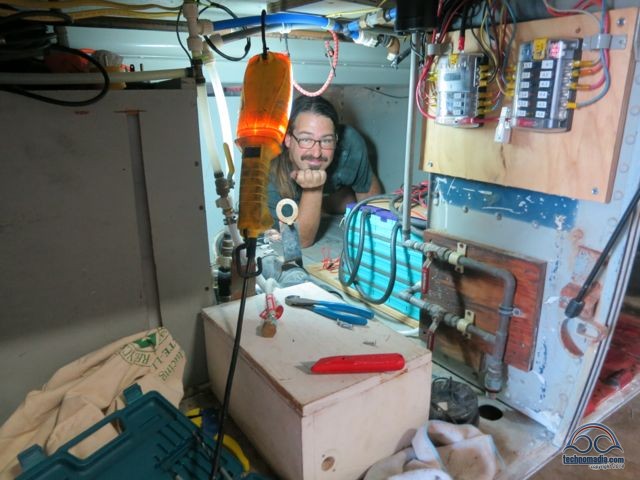
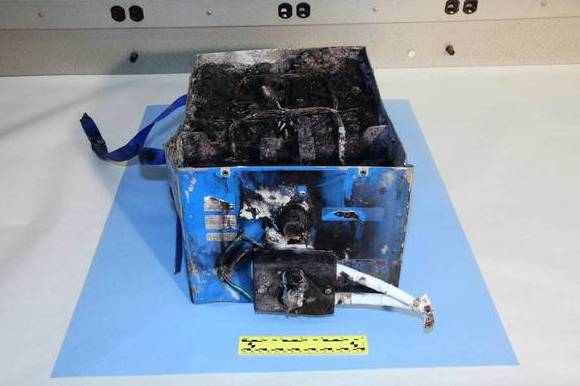
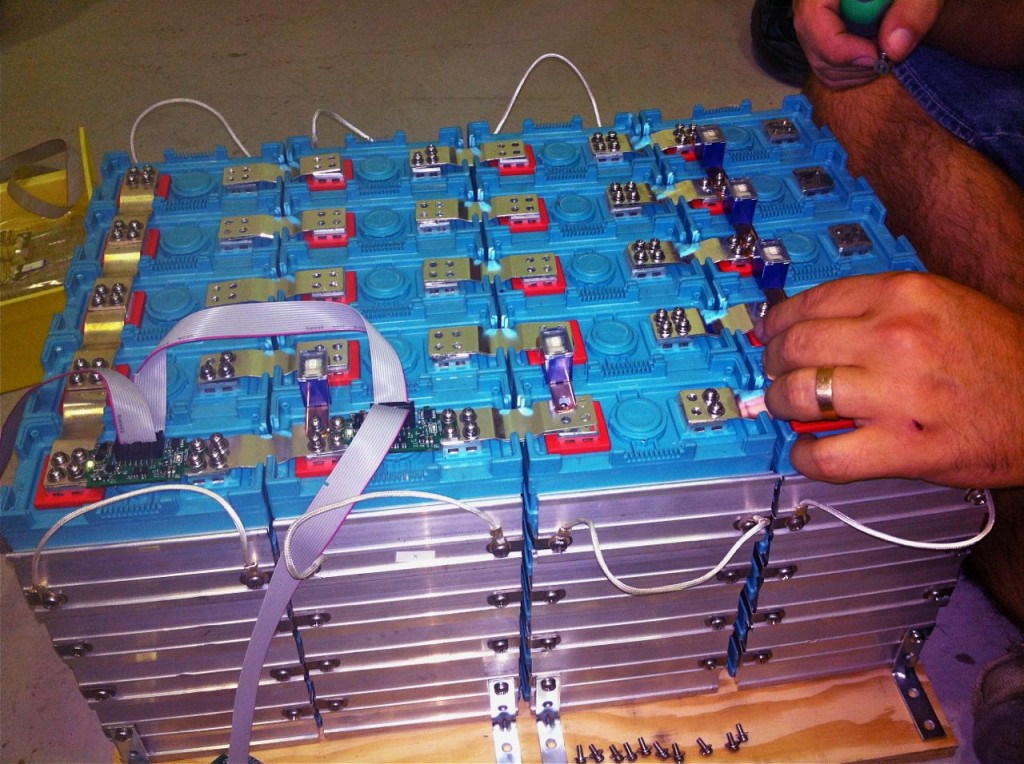
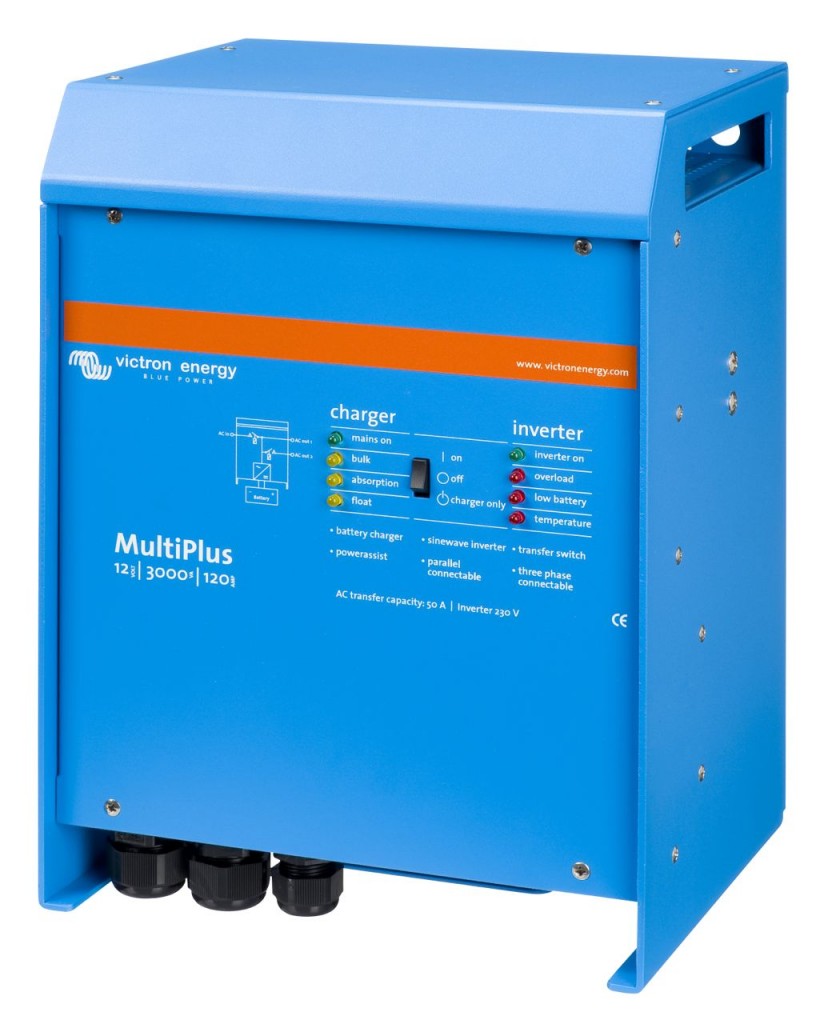
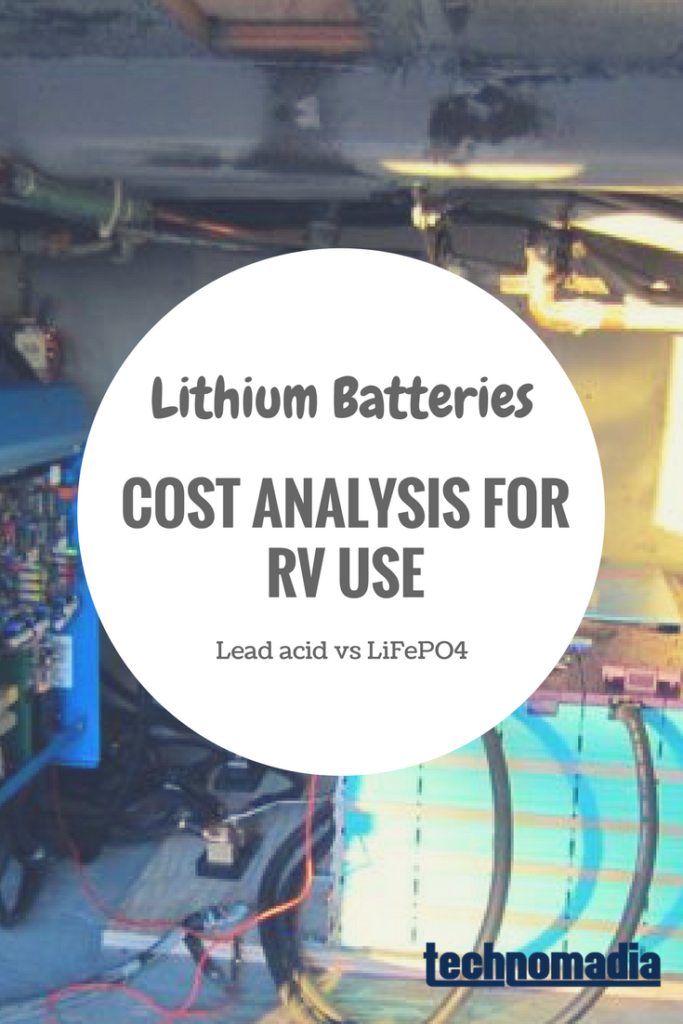
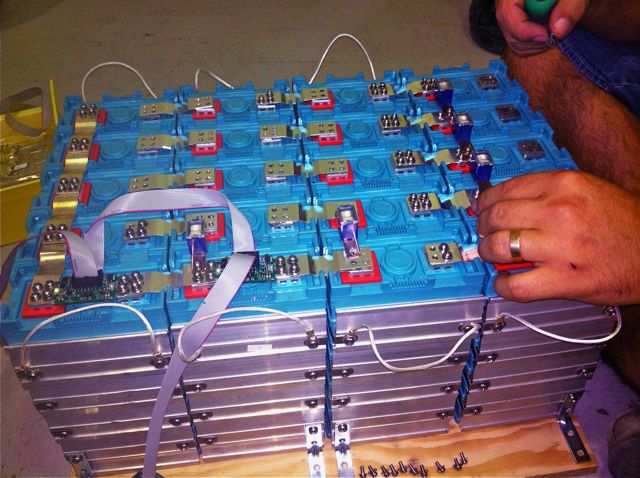
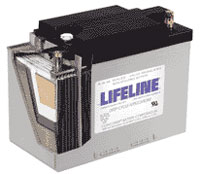



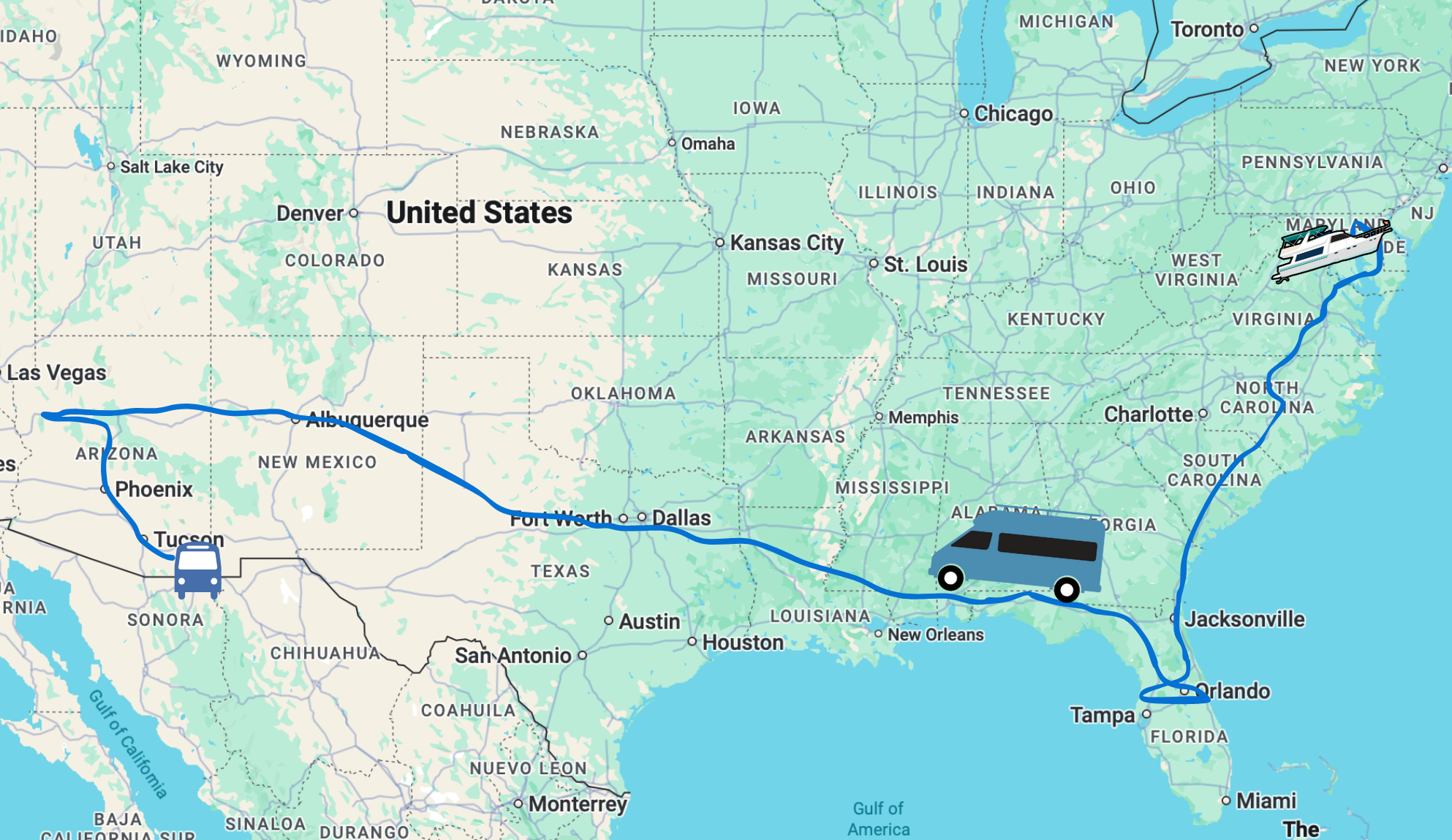
Is there a lithium RV starter battery?
There are many lithium batteries designed for starting a vehicle – but we have never investigated them.
The lithium lasts 4x longer but are they more than 4x more expensive?
They can be more upfront, but can also be cheaper in the long run. Check our cost analysis post in this series for more.
We are overlanders in a Fuso box camper. we are, 85% of the time on poor/corregated/pot hole/dirt roads, lots of vibrations, dips, pot holes, etc. We would put together 3-200A packs. How do you think these would hold up to our vibrations and potholes? any extra precautions like mounting them on soft rubber to absorb shocks? or just strap them securely down? thanks, Gary
It’s our understanding that LFP should be just as, if not more, vibration resistant than high quality AGM. This isn’t a concern we researched for ourselves too deeply, so definitely recommend seeking the guidance of the battery distributor you are considering.
Is that inverter a true sine wave inverter?
Yes – and you can read full details of it in the ‘Boosted Electrons’ post linked above.